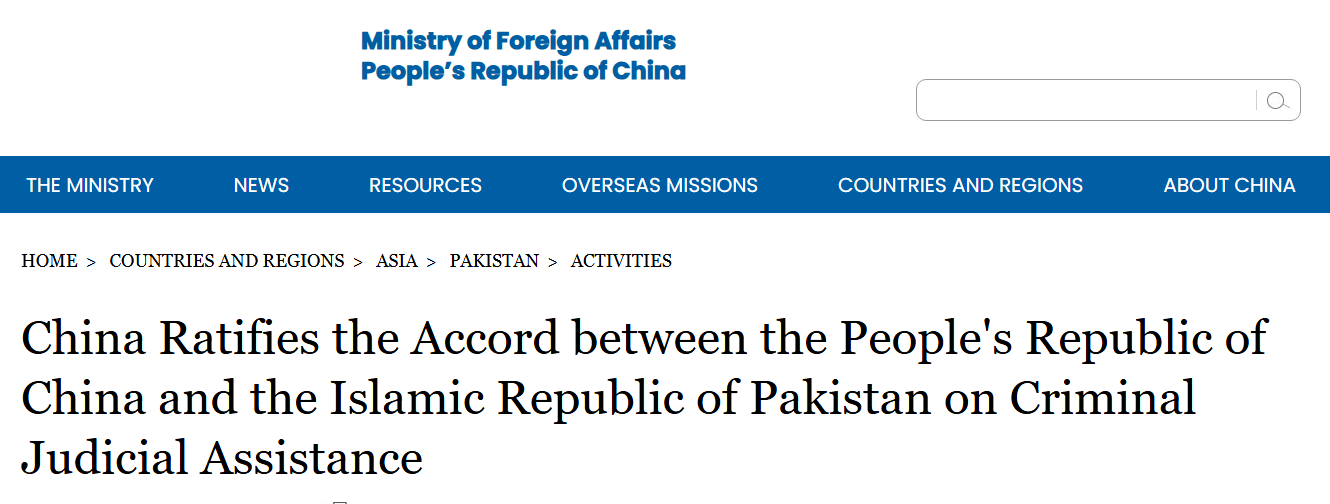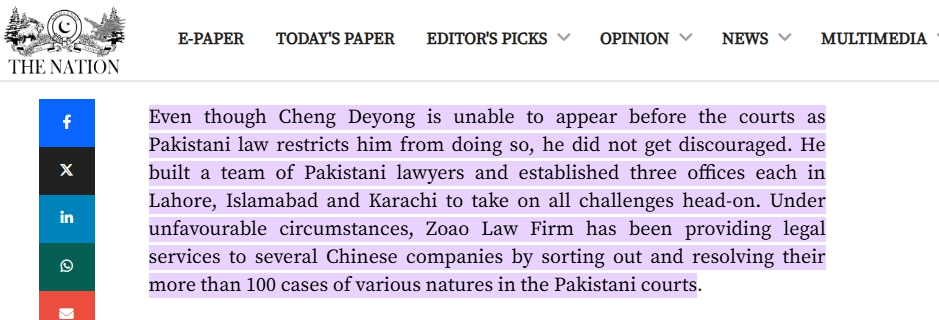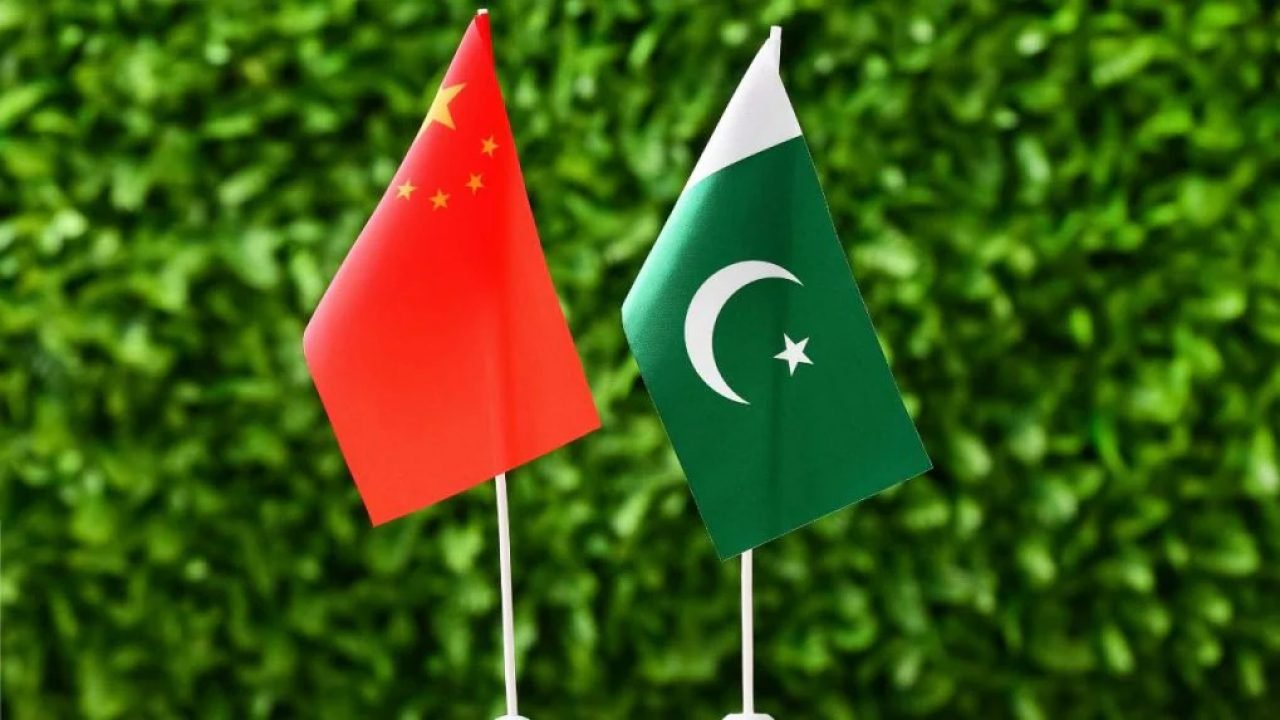International Law and Diplomatic Norms
According to national norms and international law, foreigners (including Chinese) are under the jurisdiction of the host state. The diplomatic and consular officers are only eligible for immunity (in light of the Vienna Conventions on Diplomatic and Consular Relations, to which Pakistan is a signatory). Diplomatic privileges would be extended to Chinese embassy staff in Islamabad, for example, but not to ordinary Chinese workers or businesspeople. Pakistan has bilateral extradition and mutual legal assistance treaties with China, including the 2003 Extradition Treaty, which signifies that the two nations collaborate on criminal matters rather than providing total immunity. Concretely, this would imply that a Chinese citizen suspected of engaging in a crime in Pakistan would not receive special treatment and would be treated according to Pakistani law (and might be extradited). The same principle is reiterated in the words of China’s foreign ministry, which publicly states that any of its citizens abroad should obey the laws and regulations of their host countries and respect local customs and traditions, promising no more than consular assistance within its jurisdiction.

Source: PRA Foreign Ministry
Pakistani Legal Framework
The Constitution and the laws of Pakistan do not grant any special immunity to foreign nationals. Everyone living in Pakistan, regardless of citizenship, can receive basic legal protection, but only citizens can exercise rights such as the right to vote. Practically, Chinese corporations and citizens do approach Pakistani courts regularly. As an example, one report by The Nation newspaper states that Chinese companies are using a Pakistani law-based legal corridor: A Pakistani law firm (licensed to work with the Chinese Embassy) has taken more than 100 cases to Pakistani courts on behalf of Chinese clients. This reaffirms the fact that Chinese organizations work within the Pakistani law system.

Source: The Nation
In April 2023, a Chinese national suspected of blasphemy in Khyber Pakhtunkhwa was placed under judicial custody by a local court. Immunity was not implicated, and the ordinary law was applied to the case.
CPEC and Rumors of Immunity
The Chinese investment-related agreements (particularly the China-Pakistan Economic Corridor) have been accused by some sections of the media and social media concerns of providing Chinese citizens with de facto immunity. These are baseless allegations. For example, a 2020 press release by the Ministry of Planning clearly stated that no new CPEC Authority law would make officials (from Pakistan or China) immune to accountability. It clarified that an alleged immunity clause was simply a routine part of the law, indemnifying against good-faith action, which was quite typical of numerous Pakistani laws.

Source: Geo News
In brief, in cases where special CPEC entities were established through ordinance, Pakistani authorities clarified that these entities do not supersede the jurisdiction of Pakistani courts or legal frameworks. Both Chinese and Pakistani leaders have regularly reiterated this point: for example, during recent discussions, China publicly stated that it supports Pakistan in upholding its national sovereignty and territorial integrity. Pakistan, too, maintains that all security and governance on its territory is under Pakistani control.
Security Protocols
Pakistan has demanded the security of its Chinese projects and workers. According to Pakistani law, the entry of foreign private security groups is prohibited from acting autonomously. Pakistani officials focus on high levels of security for Chinese nationals. Interior Minister Naqvi has announced several times that the protection of Chinese workers is a top priority, and all possible measures will be taken to protect them and facilitate them to the maximum extent. Such declarations are examples of the Pakistani policy of vigorously defending foreign (security) allies but without giving up complete legal jurisdiction.
Official Statements and Practice
Pakistan officials have categorically denied any legal immunity to Chinese nationals. In a 2020 clarification (cited above), the Ministry of Planning dismissed the immunity reports as categorically misleading. There is no law or signed treaty in Pakistan that gives Chinese workers immunity in cases of crimes or civil cases in Pakistan. Instead, the two governments have collaborated to promote law. Pakistan introduced an online mode of obtaining visas for Chinese businessmen, all in the name of respecting international norms without losing Pakistani jurisdiction.
Conclusion
Pakistan does not grant any exceptional legal privileges to Chinese nationals. In addition to the usual immunity enjoyed by diplomats under international law, Chinese nationals are also subject to Pakistani law, like any other foreign national. This principle is consistently asserted and applied by officials and the Pakistani legal system. Rumors to the contrary have been publicly dismissed by Pakistani ministries, and real-world incidents (court cases, legal claims, extradition mechanisms) all proceed under Pakistani jurisdiction. Such a strategy represents the insistence of Pakistan on its sovereignty and legal rights, as it supports the security and facilitation of foreign (including Chinese) partners according to the agreements and the diplomatic goodwill in the bilateral framework







